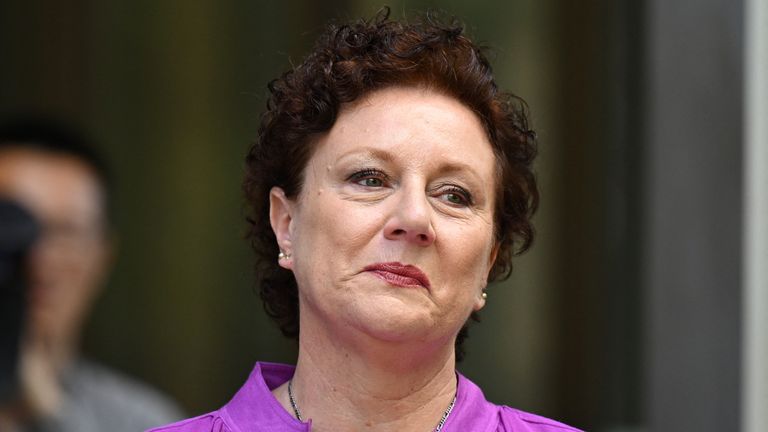14/12/2023
14/12/2023

AUSTRALIA, Dec 14: After spending two decades in prison for the wrongful conviction of killing her four children, an Australian mother, Kathleen Folbigg, had her convictions formally overturned on Thursday. This comes after her release in June, recommended by retired judge Tom Bathurst, who found "reasonable doubt" upon re-examining the evidence from her 2003 trial.
The New South Wales Court of Criminal Appeal ruled that Folbigg should be acquitted of all charges, marking the resolution of one of the country's most notable miscarriages of justice. Emotional outside the court, Folbigg expressed gratitude to supporters who tirelessly advocated for a reevaluation of her case based on new scientific evidence.
Convicted in 2003 on three counts of murder and one of manslaughter, Folbigg faced accusations related to the deaths of her four babies between 1989 and 1999. Despite no physical proof of her guilt, the jury had been convinced by the perceived unlikelihood of all four deaths being natural and certain diary passages interpreted as admissions of guilt.
In 2019, an inquiry found no reasonable doubt in her convictions, but a subsequent inquiry in 2022 revealed a previously unknown mutant gene in her two daughters that could have been fatal. This genetic explanation created reasonable doubt, leading to the judge's recommendation for her pardon.
Chief Justice Andrew Bell stated that the appeals court judges agreed with Bathurst's findings, emphasizing a substantial body of new scientific evidence that outweighed the trial evidence. They also concluded that her diaries, viewed in full context with new expert psychological and psychiatric evidence, were not reliable admissions of guilt.
Folbigg's legal team now seeks "substantial" compensation, anticipating a figure larger than any made before. Additionally, they aim to push for the establishment of an independent body for review, such as a Criminal Cases Review Commission, across all Australian states to prevent future miscarriages of justice.
Rhanee Rego, Folbigg's lawyer, stressed the importance of recognizing the suffering of an innocent woman and using it as a catalyst to improve the legal system. The call for legal reform is echoed by Anna-Maria Rabia, Chief Executive of the Australian Academy of Science, who emphasizes the need for a scientifically informed legal system in light of the Folbigg case.


